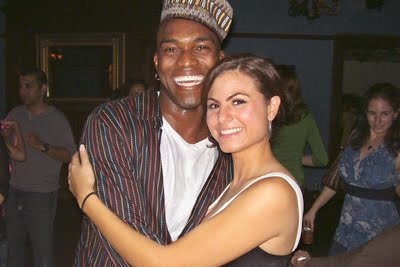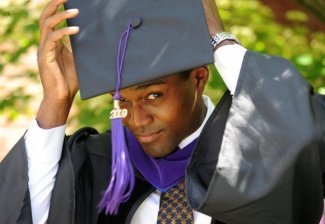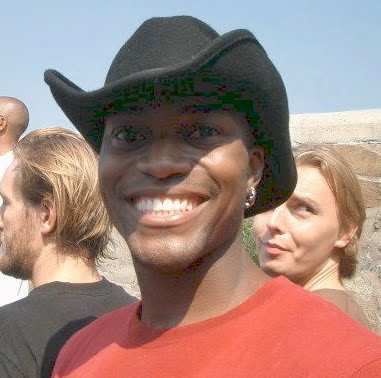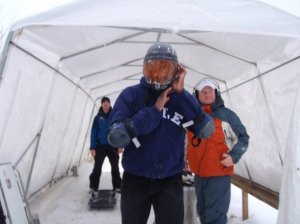An Inspiration to Us All

This is the story of a remarkable person.
My daughter’s best friend at Yale Law School was a guy named Seun Adebiyi. Seun (pronounced so that it sounds pretty much like “Sean”) was born in Nigeria, but came to the States as a child. A competitive swimmer, he represented Nigeria in international competitions for years and only just missed qualifying for the 2004 Olympic summer games by a fraction of a second (although he doesn’t say why on his blog, it’s because he was still recovering from something nasty, like a broken back). He’s one of those people with boundless energy and endless talents. He has a pilot’s license. He is a certified massage therapists who likes nothing better than giving his friends massages. He sky dives (okay, I’ll admit I’d have been happier if he hadn’t introduced my daughter to that particular passion). He campaigned hard for Barack Obama. He is inspiringly dedicated to his yoga and meditation practices.

After graduating from Yale Law, he took a job on Wall Street, started training to swim the English Channel, and embarked on a new ambition: to make history as the first Nigerian delegate to compete in the Winter Olympics. His sport: the skeleton. As Seun describes it, “First imagine the luge. Now flip over onto your stomach, and put your hands by your side. With no brakes and minimal steering, you careen precipitously down a bobsled track at nearly 80 mph. Headfirst.”

And then, out of nowhere, came the unbelievable, heart-stopping news: Seun discovered he has both stem cell leukemia and lymphoblastic lymphoma. His only hope for survival is to find a donor for a bone marrow transplant. But here’s the problem: very, very few African-Americans are enrolled in the national bone marrow registry. As a result, 83% of African-American patients like Seun never receive a transplant. Seun’s situation is made worse by the fact that he isn’t your typical African-American: he’s 100% Nigerian.
Of course, with a guy like Seun, what comes next isn’t much of a surprise. Seun has launched a massive drive to recruit 10,000 new potential donors to the national registry, with a special emphasis on encouraging African-American donors. All it takes to register is a cheek swab. Of course, if you’re found to be a match, you need to be committed to the donation process, which can be done in one of two ways. Both are outpatient procedures and neither is especially grueling. You can learn more about becoming a donor or register online at skmsamericas.org.
To learn more about Seun, watch his video…
See the support he's receiving from people like Justin Chambers and Rihanna here. You can also read his article at the Huffington Post, and follow his inspiring story on his blog, Seun's Skeleton Blog.
And please, consider signing up for the national Marrow Donor Program. As Seun says, “in 2014, when I am racing down the Olympic slopes in Sochi, Russia, you can say you helped me make it to the finish line.”




